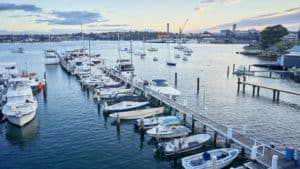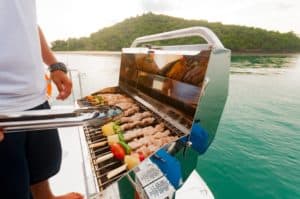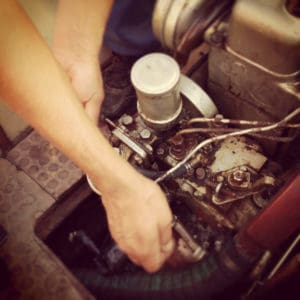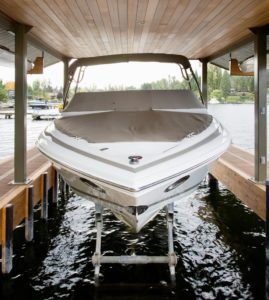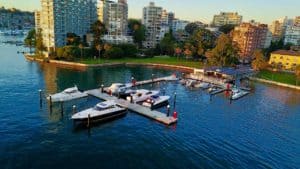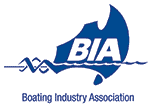Driving at night can be more complex than driving during the day, but it’s far from impossible. The same can be said about boating at night. Cruising at night limits your eyesight. Objects might seemingly jump out at you when you’re out on the ocean. That is why many individuals limit their sailing activities to daytime hours.
You’ve undoubtedly considered spending some evenings on the water, too. Nevertheless, even while you appreciate the quiet of the waters and the starry sky while boating after dark, you must consider your safety. Whatever the cause, you must safely return to shore at some point when you’re out on the water at night. Follow these guidelines both before and after you get on the water for a safe night of boating.
What Should You Bring for a Safe Nighttime Boating Trip?
If the weather and equipment are appropriate, nighttime boating can be safe, adventurous, and fun. It’s even possible to make it romantic. GPS, modern radar, comprehensive electronic mapping, and night vision scopes are examples of technology that may make your trip more pleasant.
Safety Equipment
Whether day or night, you are required by law to carry a complete armoury of safety equipment. It should contain safety equipment such as life jackets, sound signalling devices like a compressed air horn, and flares. Additionally, have a few glow sticks on hand and assign one to each member of your team. If someone goes overboard and has a light, it is considerably simpler to locate them.
A Device for Navigation
Navigating your way home on the open ocean at night time is a lot more complicated. A lot of things don’t appear to be the same. It is ideal to use a chart plotter or a GPS to assist you with your navigation.
Bring a Spotlight
You should have your navigation lights on and watch for other boats’ navigation and anchor lights. Having a bright spotlight can assist a fast-moving boat in seeing you better in an emergency. Moreover, it will help you in docking once you’ve arrived at the marina. Remember to avoid shining it directly at other skippers since this may cause them to become temporarily blinded.
Reliable Communication Devices
Carry your mobile phone if you need to call someone to let them know you’ll be late. Though, keep in mind that it might not operate on the water. You might lose signal and won’t be able to make calls or texts.
If you need to radio for aid and can’t obtain mobile phone service, you should also have a portable VHF, also known as a marine band radio, and additional batteries.
Pack Warm Clothing
Even though the weather is pleasant during the day, nights on the water can suddenly become quite cold. It’s better prepared. Everyone on board should bring a jacket and other warm clothing.
Don’t Forget to Bring an Anchor.
You’ll be pleased you have an anchor, anchor light, and anchor rod if you need to spend the night on the water. You should also practise anchoring in the daylight, as the technique is considerably more difficult after dark.
Safety Tips Follow When Boating at Night
On top of things you should pack when boating at night, here are some safety tips to keep in mind.
Tip #1. Take Things Slowly
After nightfall, the first rule of boating is to slow down. In the dark, hazards in the water, such as rocks, logs, unlit docks, and pilings, are challenging to detect. Slowing down will help you see and avoid them in time.
Tip #2. Know How to Light It up Right
Other boats will be looking for your navigation lights at sundown, so be sure they’re turned on. Your navigation colour lights will tell other boats whether you’re moored or moving and in which direction, so it’s critical to have them working.
Tip #3. Reduce the Amount of Noise
Going slow is not only safer, but it also means less engine noise. It means you can easily hear things like the motor of another boat. You should turn off any music to listen better. Request that passengers speak softly to be more aware of what is happening around them.
Tip #4. Stay Mindful
Be cognisant of the ambient lighting around you. Another boat or lights might be mistaken for a navigation aid, buoy, or marker.
Tip #5. Assign a Watchful Eye
Ask a trusted passenger to watch the bow of the boat, wearing a life jacket, to be your eyes and ears on the sea. They will be looking out for channel markers, navigational buoys, other boats, and possible dangers.
Tip #6. Stay Away From Traffic
Keep out of shipping lanes and allow larger vessels plenty of room. Small boats will not show up well on a ship’s radar, so avoiding traffic is best.
Tip #7. Aid in the Safety of Passengers
You can easily keep track of passengers and limit the chance of anybody falling into the sea with proper precaution. Require everyone on your boat to put on life jackets and stay towards the centre. Or stay below in the cabin or deck. Falling overboard in the middle of the night is very dangerous. It’s considerably more challenging to locate someone, and individuals are more prone to get wounded in the water at night time. Safety must come first.
Tip #8. Keep Your Vision Safe
After dark, it’s critical to protect your night vision by avoiding white light. A red LED light is ideal for seeing charts and instruments clearly without obstructing your night vision. Dim the lights as much as possible if you have a bright instrument console. Only stare at it for brief periods. If the instruments don’t dim at all, a towel put over the console will suffice. Additionally, to preserve your night vision and prevent misleading other boaters, make sure to switch off all unneeded lights on your vessel.
Tip #9. Make a Tow Request
Request a tow if ever you break down or encounter problems late at night.
Tip #10. Get Insurance
Ensure that your vessel is fully insured if you will be taking it out at night, especially if you will be carrying passengers.
While these suggestions are helpful, nothing beats firsthand knowledge to ensure a safe boating journey. If you’re a first-time boater or are on an unfamiliar vessel, you should put in more hours during the day before tackling a nighttime operation. Even then, begin with short nighttime trips and gradually progress to a moonlight ride. Before you go, remember to switch on the lights at the dock.
Stunning Marinas Throughout Sydney
The cornerstone of our marinas is effective management and facility operation. For each demand, our management team has identified critical areas and tried-and-true formulae. After years of refining best practices, our created, specialised programmes and systems are calibrated for success.
Every marina is backed by the expertise of our onsite and corporate teams, who are dedicated to assisting customers with day-to-day operations and unexpected problems.
In Sydney Harbour and rural NSW, Corleone Marinas provides complete marina management services. As a result of our involvement in several marina acquisitions, we have gained a comprehensive grasp of legal compliance and industry regulation. Our team currently focuses on operational takeovers and developing site-specific management strategies. Our highly qualified team can assist with all aspects of marina operations.
We’d love to hear from you. Contact us at any of the following locations:
- Balmain (02) 9555 2668
- Drummoyne (02) 9555 2668
- Elizabeth Bay (02) 8540 2579
- Long Island (02) 9985 7318


